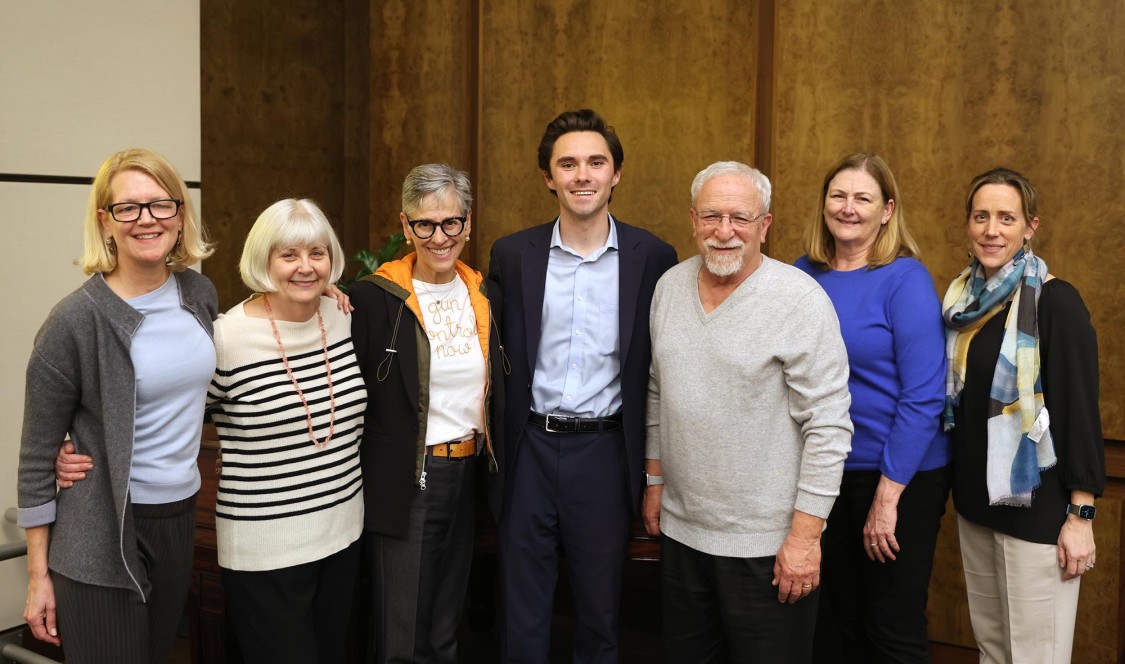As a student at Harvard University, David Hogg joined the shooting club.
A survivor of the 2018 Marjory Stoneman Douglas High School shooting, who subsequently became a passionate gun policy advocate, Hogg sought to move beyond divisive arguments, to find constructive dialogue.
“I went to college because I wanted to have conversations with people who agreed with me—and people who didn’t agree with me at all,” Hogg told an overflowing crowd at the Athenaeum on Feb. 4. “Because I knew in order for me to make progress on this issue, I had to go and meet people where they were. I had that in mind when I joined the shooting club.”
Hogg spoke at CMC a mere four days after becoming the first Gen Z member elected as a vice chair of the Democratic National Committee. His talk, “Engage in the Change: Our Generation Must Own Democracy,” was co-sponsored by the Mgrublian Center for Human Rights and drew students from across the 5Cs, as well as CMC alumni, staff, and faculty.
Shortly after the shooting at his high school, Hogg co-founded March for Our Lives, now one of the world’s largest youth-led movements. A 2023 graduate of Harvard University, Hogg detailed how he then co-founded Leaders We Deserve, a grassroots political organization dedicated to electing young progressives to Congress and State Legislatures.
While identifying as a progressive, Hogg encouraged the audience to find common ground with those on the opposite end of the political spectrum.
“Even if you can’t convince somebody fully to align with you, if you can get them to fight you less hard, that’s still progress. If you can give them the opportunity to be your friend and not see you as just the enemy or somebody who hates them, you actually have the opportunity to change their mind,” he said.
Mia Nelson ’25, an Economics and History major at CMC, asked how to combat “alternate facts” and misinformation: “I’m curious about how you turn that person-to-person listening into a larger movement.”
“I think the first step is you have to humanize yourself to the other side and show them that if they say something that is very out of pocket, (your response) isn’t condescending to them, that you are willing to have that difficult conversation with them,” Hogg replied. “And even if they do say something wrong or that you don't agree with, not just going off on them and being like, ‘You’re terrible.’ It might feel good, but it’s not going to change their mind.
“Part of what that looks like is asking questions: ‘Why do you feel that way?’ And explaining, ‘Well, this is my perspective, that’s why I feel this way.’ And you’re not going to convince everybody that way, but what we need to realize is that most people in this country, they’re not necessarily on the left or the right.”

